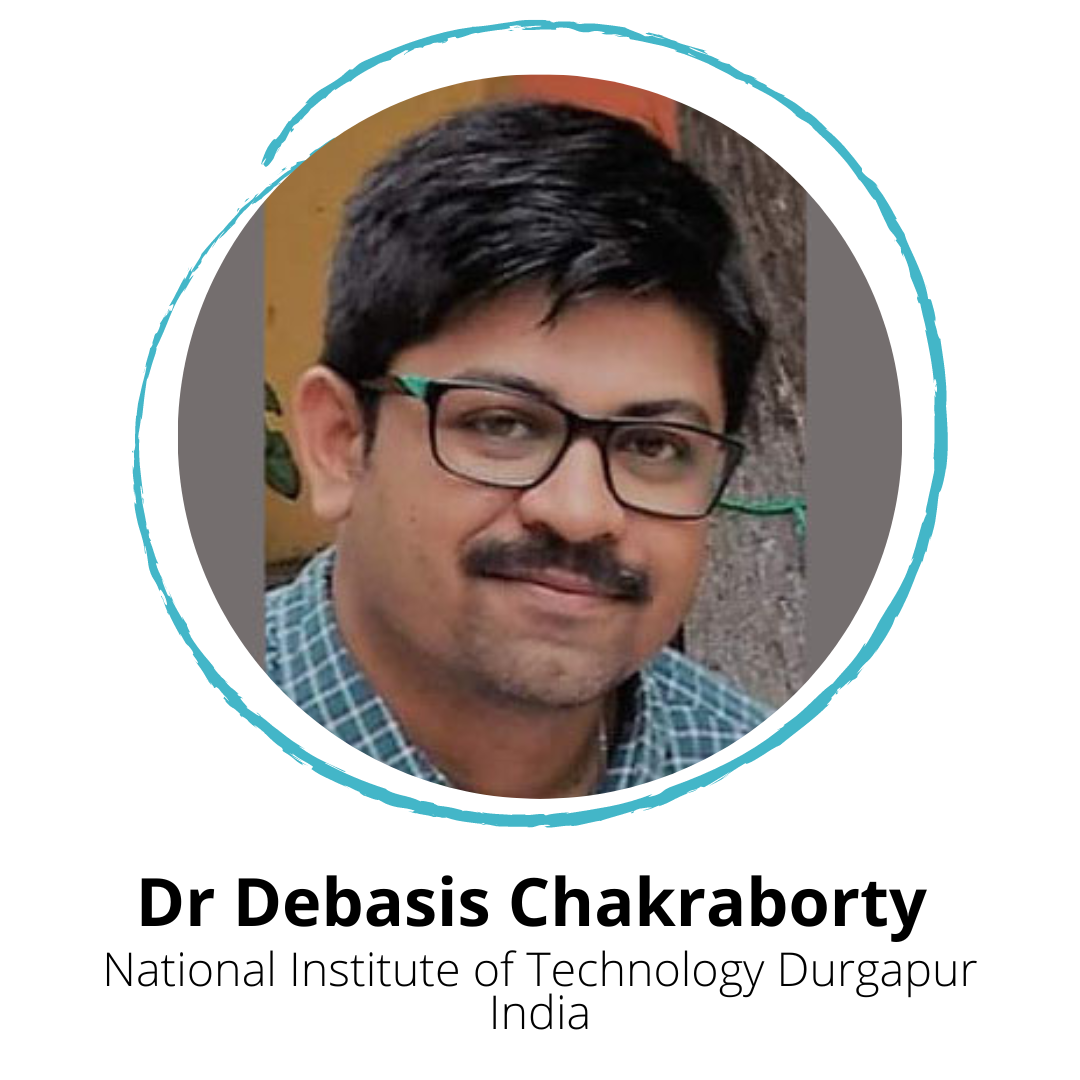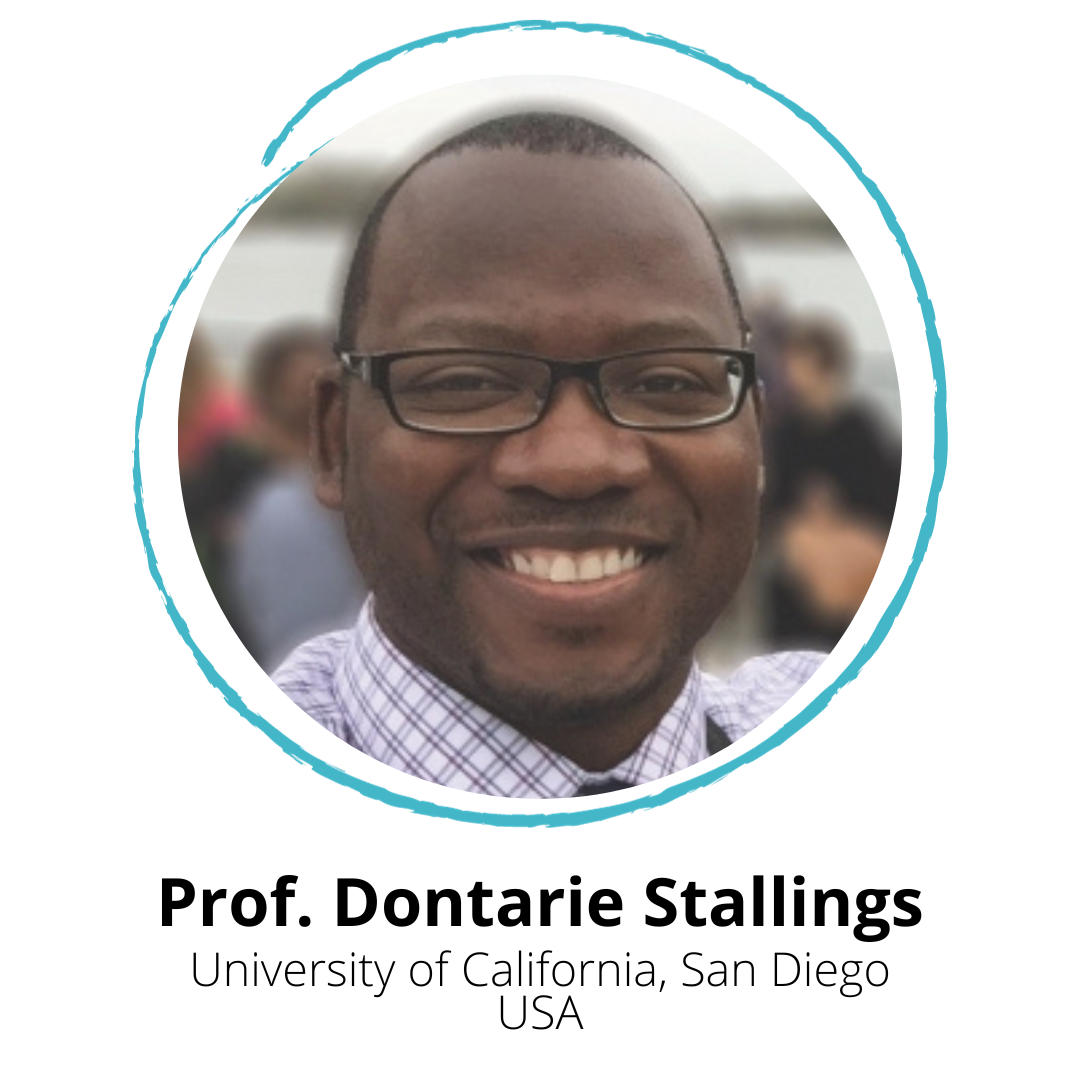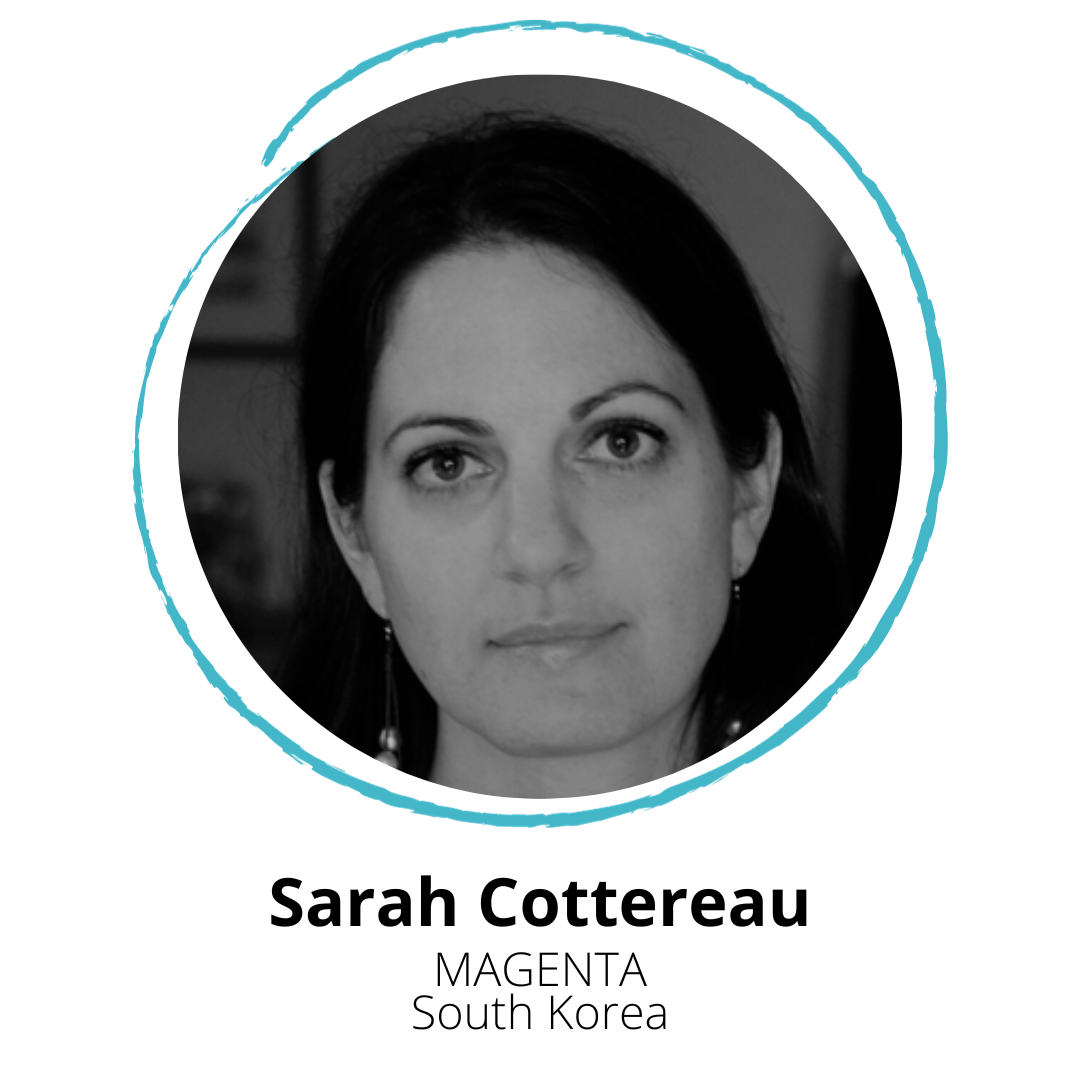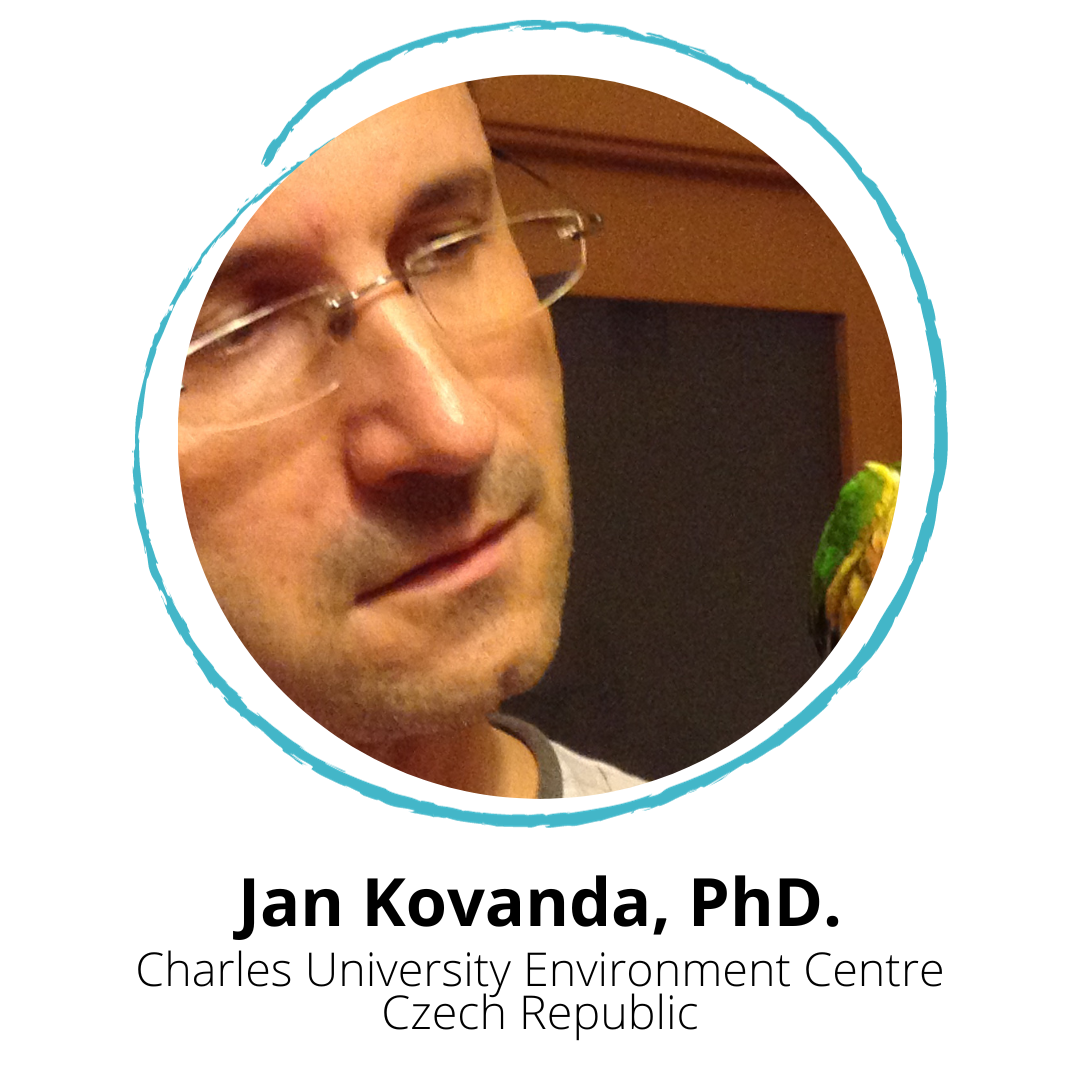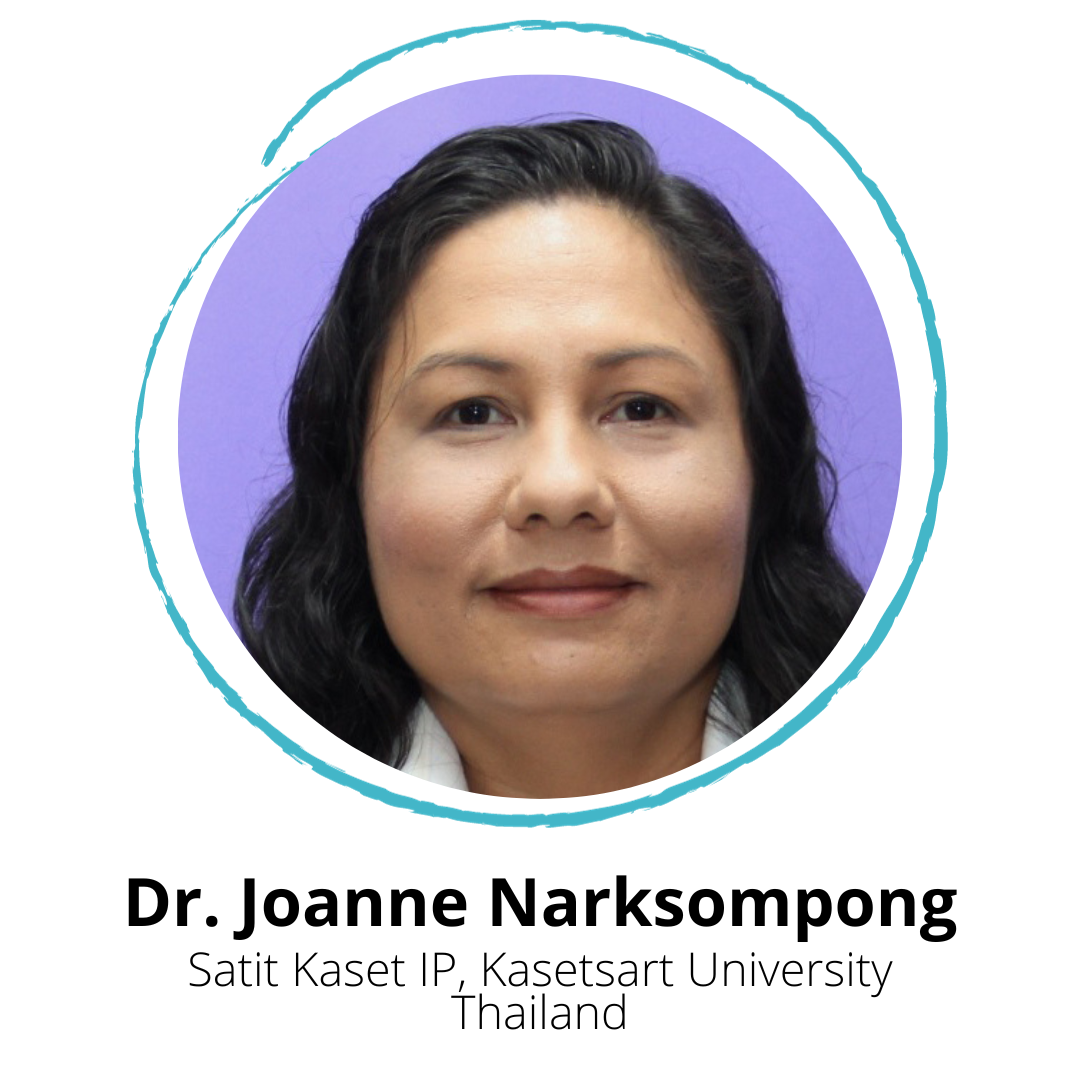10th Sustainable Development Conference [SDC2023]
5th - 7th of November - Bangkok, Thailand
Radisson Suites Sukhumvit
PRESENTERS
From IPAT to ICPAT: Environment, Development, and the Cultures of Unsustainable Societies
How to transform the world’s unsustainable societies into sustainable ones is the defining challenge of our time. This challenge is no less daunting in developing societies than in developed ones. Only holistic approaches are likely to succeed, especially those that rely on systems thinking to grapple with the immense, dynamic complexity of the situations that make societies unsustainable. These approaches can reveal the most fundamental causal factors, which must be rooted in beliefs. The most powerful beliefs are likely to be the ones embedded in the belief systems at the core of a society’s culture. Notwithstanding these insights, we are left with a crucial question: Where in the dynamic complexity of today’s societies should we look to find the beliefs in which the unsustainability of those societies is rooted? The “IPAT” formula—I[mpact] = P[opulation] x A[ffluence] x T[echnology]—points us in the right direction. Its second and third factors are measures of the essential ends of development.
Behavioural Drivers of Urban WASH Practices in Pakistan
Over the last decades, while Pakistan has eliminated most open defecation practices in rural communities, increased access to safe water, and increased access to Water, Sanitation, and Hygiene (WASH) infrastructure, the country continues to face significant WASH challenges. To address these issues, MAGENTA worked with UNICEF Pakistan and the Government of Pakistan (GoP) to understand WASH practices in urban settings through a behavioural analysis of the drivers, barriers, and decision-making processes that encourage healthy WASH behaviours to improve people’s lives. Through behavioural research conducted in Lahore, Karachi, and Mingora, MAGENTA found that the lack of sufficient service provisions by the GoP and private companies in urban communities, and increasing demand from the population, had a negative impact on communities’ access to safe drinking water and waste management. To address the barriers identified through the behavioural research, MAGENTA recommended the development of a behaviour change communication strategy aimed at increasing motivation, opportunity, and capacity around practicing healthy WASH behaviours.
|
Doris is a programme officer at MAGENTA, who designs and manages social and behaviour change programmes across Asia, with a specific focus on countries in the South Asia region. She supports work across a variety of thematics, specifically in protection, anti-corruption, and inclusion, and has a keen interest in gender mainstreaming, international development law, and protection issues in fragile contexts. Doris brings experience working closely with the Alliance for Child Protection in Humanitarian Action and has also developed her passion for tackling social development issues through working at various local and international NGOs in Canada & South Korea. She continues to develop her expertise at MAGENTA to support social and behaviour change campaigns across Asia.
www.magentaconsulting.org |
Why Corporate Sustainability and How to Make it Credible
Corporate sustainability, encompassing environmental, social, and governance (ESG) practices, has evolved into a critical component of contemporary business strategies. The "why" behind corporate sustainability is rooted in the need to address pressing global challenges. These challenges include climate change, resource depletion, social inequality, and shifting stakeholder expectations. By embracing sustainability, companies not only contribute to the greater good but also secure their long-term viability and success. However, the adoption of corporate sustainability is not sufficient on its own. To make sustainability credible and impactful, organizations must go beyond token gestures. Credibility involves transparent reporting, genuine commitment to ESG goals, and concrete actions that demonstrate a dedication to positive change.
|
Corporate sustainability, encompassing environmental, social, and governance (ESG) practices, has evolved into a critical component of contemporary business strategies. The "why" behind corporate sustainability is rooted in the need to address pressing global challenges. These challenges include climate change, resource depletion, social inequality, and shifting stakeholder expectations. By embracing sustainability, companies not only contribute to the greater good but also secure their long-term viability and success. However, the adoption of corporate sustainability is not sufficient on its own. To make sustainability credible and impactful, organizations must go beyond token gestures. Credibility involves transparent reporting, genuine commitment to ESG goals, and concrete actions that demonstrate a dedication to positive change.
corpstage.com |
Biomass based energy cooperative as an example of sustainable development in rural areas
The current lack of energy cooperatives based on biomass in many European countries creates space for their intensive development in the near future. This is especially true as bioenergy plays an increasingly important role in the European Union's (EU) energy transition and in supporting its ambitious climate goals and sustainable development plans.
One of the example of such initiative in rural areas is planned bioenergy cooperative located in the small village in Poland. The base for its creation is a large-scale private farm engaged in crop production and dairy cow breeding. The concept of sustainable development of the farm included shortening the current logistic chain of fuel supplies through the construction of a container-based agricultural micro biogas plant using cattle manure as a substrate and the installation of a medium-power biomass heating boiler fired with cereal straw bales.
One of the example of such initiative in rural areas is planned bioenergy cooperative located in the small village in Poland. The base for its creation is a large-scale private farm engaged in crop production and dairy cow breeding. The concept of sustainable development of the farm included shortening the current logistic chain of fuel supplies through the construction of a container-based agricultural micro biogas plant using cattle manure as a substrate and the installation of a medium-power biomass heating boiler fired with cereal straw bales.
Electricity prices and renewable energy development – evidence from 18 European countries
This study analyses the relationship between electricity prices and combined wind and solar installed capacity in 18 European countries. Considering the empirical cross-section dependence in the data series that could be due to close geographic proximity, similar consumption culture, and comparable economic and policy structures, this study utilizes panel econometric techniques that correct for biases introduced by cross-section dependence. Moreover, we control for the impact of natural gas price and per capita GDP on electricity price and renewable energy capacity in the regression analysis. We find evidence of bi-directional long-run relationships between electricity price and renewable energy capacity. In particular, a rise in electricity price will promote the development of renewable energy capacity while a rise in renewable energy capacity empirically reduces electricity price. The results provide support to the cannibalization effects of renewable energy, in which a rise in renewable capacity reduces electricity prices and hence the monetary returns and incentives to invest in renewable resources. Per capita GDP is found to exert a very strong positive influence on renewable capacity. Further, a rise in natural gas price or per capita GDP is estimated to increase electricity price.
|
Raymond Li is Associate Professor of Economics at the University of Canberra. Prior to this appointment, Ray held a faculty position at the Hong Kong Polytechnic University and taught Economics at Macquarie University. Ray’s research interests include applied econometrics and energy economics. He is particularly interested in energy demand, energy pricing and market integration studies. His research outputs appear in a range of high impact factor international journals like the Energy Journal, Energy Economics, Energy Policy, Energy and Applied Energy, among many others. Ray is an editorial board member of three international academic journals and he has reviewed numerous research articles for academic journals.
|
Asymmetric Impact of Remittances on Renewable Energy Consumption: Empirical Evidence from India
Inflows of remittances play a decisive role in shaping the economic and societal welfare of India. On the other hand, India being one of the fastest growing economies, its ever-growing demand for energy has a determining impact over World’s energy consumption. Remittances inflows do play a pivotal role in financing and shaping this perpetual demand for energy of India. However, very little exploration has been made on the interrelationship between inflows of remittances and energy consumption in India. Present study attempts to bridge this gap. The study empirically tests the asymmetric impact of remittances on the level of consumption of renewable energy in India over the period 1990 – 2018, which has rarely been studied. Results of nonlinear autoregressive distributed lag (NARDL) model show that the lagged remittances shock has a significant impact over renewable energy consumption in India. Long run result confirms a negative shock of remittances reduces the use of renewable energy by a substantial margin. In fact, reduction of remittances has more significant impact than increase of the same, implying existence of an asymmetric effect. One of the key policy implications of these findings for the government would be to promote policies to enhance inflows of remittances as it would facilitate the use of renewable energy in India and help India to reach its Sustainable Development Goals (SDGs).
|
Dr. Debasis Chakraborty is presently working as Assistant Professor of Economics in National Institute of Technology Durgapur, India. He is involved in Undergraduate, Postgraduate as well as in Doctoral level teaching. His research areas are Development Economics, Migration Studies and Energy Economics. He has published several papers in various national and international journals including in edited volumes of international repute. He has two books in his name. He has supervised both Undergraduate and Post Graduate Projects and presently supervising Doctoral students as well.
|
Sustainable Tourism Development through the Lens of the Stakeholder Theory: A Case Study of International Tourists in Phuket, Thailand
Sustainable tourism is about focusing on the balanced development of tourism while continuously adapting to challenging and changing conditions. Sustainable development is often expressed in three intersecting dimensions, including economic, sociocultural, and environmental aspects. Moreover, it is meant to consider the interests of all tourism stakeholders. Presently, the perspective and role of tourists within this framework is not well understood. Therefore, this deductive research aimed to analyze international tourists’ perceptions of sustainable tourism in Phuket, Thailand through the lens of the stakeholder theory. Phuket is a tropical island destination in southern Thailand and is known for its stunning scenery and vibrant culture. It has emerged as a popular tourism destination, attracting more than 10 million international visitors per year. More specifically, the objective of the research was to investigate the perceived importance of sustainable tourism and the tourists’ role in achieving sustainable development. Subsequently, an exploratory study design was applied as a methodological frame when investigating these problems empirically. More than fifteen hours of transcribed interview data were triangulated with non-participatory observations to analyze the results thematically.
|
Kevin Fuchs is affiliated with the Faculty of Hospitality and Tourism, Prince of Songkla University, Thailand, and the Faculty of Social Sciences and Leisure Management, Taylor‟s University, Malaysia. He was educated in Finland and Sweden and has developed a keen research interest in topics that revolve around sustainable development. He is currently ranked in the world's top 25 researchers in Tourism Education according to Google Scholar.
|
Producing and Managing Sustainability in a Flattened Scientific Workforce
Often, challenges related to equity, diversity, inclusion, and belonging are framed as moral/ethical dilemmas. However, it is crucial to recognize that achieving these ideals is not just a matter of ethics but also a path to excellence, merit, and global competitiveness. The prevailing challenge within the scientific community is both simple and intricate: how can institutions prepare themselves for the forthcoming flattening of the scientific workforce while sustaining excellence, collegiality, and ensuring long-term sustainability? This presentation delves into science policy solutions that revolve around diversity, equity, inclusion, and belonging. The work presented here is designed to equip groups, individuals, and institutions to effectively address the evolving landscape of the global scientific workforce. Simultaneously, it strives to elevate their scholarship excellence, promote collegiality, and place a significant emphasis on sustainability. The efforts undertaken encompass two key dimensions:(i) Formulating science-based policies and procedures, subject to peer review, that position institutions and individuals favorably to tackle this overarching challenge while also fostering sustainability. (ii) Evaluating the capacity of STEM programs to achieve/maintain sustainability while effectively managing their equity, diversity, and inclusion profiles. These strategic efforts aim to create a holistic approach that bridges the transition in the scientific workforce and promotes long-term sustainability.
|
Prior to his current role at the University of California San Diego, Professor Stallings obtained his PhD in Chemistry from the University of Alabama, with a research focus on Chromium Toxicity and Science Policy. Subsequently, he held positions at the Georgia Institute of Technology and Johns Hopkins University, specializing in science policy related to diversity, equity, inclusion, and belonging. Presently, his research is centered on the sustainability of the scientific workforce. His work is dedicated to developing science policy solutions that revolve around diversity, equity, inclusion, and belonging. Its primary objective is to empower groups, individuals, and institutions to effectively navigate the changing landscape of the global scientific workforce. Simultaneously, it strives to enhance their scholarly excellence, foster collegiality, and place significant emphasis on sustainability. These strategic initiatives are designed to create a comprehensive approach that addresses the transition within the scientific workforce and emphasizes long-term sustainability.
|
The Jordan Recycling Activity
The USAID Recycling in Jordan project is a USAID-funded Activity that uses a market systems approach to increase commercial sector utilization of recycling services in Amman, Jordan. The project works closely with private recycling firms, the commercial sector, the Ministry of Environment, and the Greater Amman Municipality to increase the competitiveness of the recycling through strengthening market linkages and improving the enabling environment. As the recycling sector becomes more competitive, the project supports it to capitalize on opportunities that boost commercial sector use of recycling services. Social and behavior change communication (SBCC) play a crucial role in any attempt to generate demand for recycling amongst commercial and private sector waste generators. These approaches focus on understanding and addressing the social and behavioral factors that impact the uptake of recycling services using cutting-edge communication. Therefore, MAGENTA joined Chemonics International’s consortium as a partner to implement SBCC activities as part of the USAID Recyling in Jordan project, including conducting a barrier analysis, designing an SBC strategy, and implementing a multi-media communication campaign. This presentation will walk you through the background, approach, and results of the project.
|
Nedal is a Social Behavior Change Programe Manager for the Middle East team at MAGENTA. His expertise in the international development sector covers various focus areas such as economic development, gender-based violence, social inclusion, disability inclusion, countering violent extremism, as well as safeguarding. Nedal has a Bachelor's in Global Studies from the University of California, as well as a Masters in Economic Policy from SOAS, University of London.
|
Nature, Causes and Trend of Labour Force Participation of Women in India and its Interlinkages with Sustainable Development
Almost half of India’s population is women (48.5 percent). Hence commemorating 75th year of its independence with ‘Azaadi Ka Amrit Mahotsav’ the country has aptly upheld the theme of “Empowered women- Empowered Nation”. Women labour force participation (WLFP) is one of the key indicators of empowering women and it is one of the driving forces of faster economic growth of most of the emerging economies, India being no exception. But still the WLFP rate has been declining continuously and alarmingly in India from 34.1 in 1999-2000 to 27.2 percent in 2011-12. In fact, there is gender as well as locational gap (rural-urban division). Periodic Labour Force Survey (PLFS) 2023 found that 60 percent of working women are found to be self-employed in a business or an enterprise and didn’t report any fixed income. The Covid-pandemic has made the situation worse as countless women lost their jobs. As economic sustainability is closely linked with WLFP, this lack of stability in income in the hand of women had a serious blow to India’s dream to become a sustainable economy. Present study empirically identifies the factors responsible for low labour force participation of women in India. It also analyses the interlinkage existing between women workforce participation and sustainable development of India. The study also focuses on how education for women is responsible for their participation in the workforce and contribute towards the sustainable development of the country.
|
`Dr. Gargi Banerjee is a core Academician with a rich experience in the field of Academics for the last 17 years. She is a Doctorate in Economics from The University of Burdwan and has Published several Research papers in various National and International Journals of repute. She has Presented Research Papers at various National and International Conferences. She has several awards to her credit. Recently she has been Awarded with the International Award for Working Women by Asian Academy of Arts in the 2022.
|
The gender, climate change and displacement nexus in Arab states
This year, MAGENTA partnered with the UNDP Regional Bureau for Arab States to explore the differential impacts of climate change on women, with a particular focus on displaced women and girls. This presentation will showcase some findings of this research, unpacking the interconnection between climate change, displacement, and gender in in Iraq, Jordan, Lebanon, and Yemen.
Material footprint: A tool to express material consumption, foreign material dependency and regional shifts in environmental pressures and impacts
The poster will present an overall concept and importance of the material footprint indicator (MF) and show times series of MF, MF per capita and physical trade balance for six large economies, namely China, Germany, India, Japan, Russian Federation and USA.
|
Jan Kovanda (1975) graduated at the Charles University, Institute for Environmental Studies, and became MSc. in „Protection of Environment“. He became a PhD in „Applied Ecology“ at the same institute in 2008. Since 2000, he has worked at the Charles University Environment Center as a member of the department on environmental sustainability indicators. His main areas of research includes environmental accounting and relevant indicators. Since 2001, he has been above all focused on social-economic metabolism issues, particularly economy-wide material flow analysis and indicators and resource management. Within this field, he has worked on an array of both national and international projects.
|
Assessing the Global Allocation of Climate Mitigation Efforts and its Alignment with Climate Justice Goals
Climate change poses a grave threat to the planet’s ecosystems, human societies, and future generations necessitating urgent action to mitigate emissions and adapt to its impacts. Climate change disproportionately affects the Global South as associated disasters are geographically more harsh in the South. Additionally, they often lack the financial resources to address their consequences and to mitigate carbon emissions as they also aim at closing the industrialization gap with the Global North. This paper analyzes the current distribution of climate change mitigation efforts among nations as a proxy for international strategies toward a just and equitable shift to sustainability, and uses game theory to propose a desirable state for these strategies. We formulate this state of geopolitical relationships as a per-country regression on nationally determined contributions from the Paris agreement, gross domestic product, greenhouse gas emissions, and climate risk index. This paper paves the way for research on policies needed to reach a state of geopolitical relations that would facilitate a global and fair transition to sustainability.
|
Kate Richardson is an environmental enthusiast and senior in the International Baccalaureate program at Convent of the Sacred Heart High School. She is the winner of her school's Math Distinction Award, a Stanford University Climate Leaders Fellow, and President of her school's Eco Club. She is delving into her climate justice passion alongside Dr. Guillaume Falmange of Princeton University's High Meadow Environmental Institute.
|
Using Social and Behaviour Change Communication to change Perceptions, Attitudes and Behaviours around Climate change, the Environment and Water Scarcity in Iraq
MAGENTA, in partnership with UNICEF Iraq, embarked on an exciting mission to design and implement a powerful and evidence-based communication campaign on climate change, water scarcity, and environmental issues. The campaign aimed to increase awareness and encourage the adoption of sustainable actions to mitigate the impact of climate change on Iraqi citizens' lives and reduce pressure on resources and the environment in Federal Iraq and Iraqi Kurdistan. In this presentation, MAGENTA will present the campaign design process, showcasing how they translated research insights into a compelling creative concept using a participatory approach.
|
Nedal is a Social Behavior Change Programe Manager for the Middle East team at MAGENTA. His expertise in the international development sector covers various focus areas such as economic development, gender-based violence, social inclusion, disability inclusion, countering violent extremism, as well as safeguarding. Nedal has a Bachelor's in Global Studies from the University of California, as well as a Masters in Economic Policy from SOAS, University of London.
|
The Role of High School Education in Advancing Climate Action and Environmental Stewardship
In an era defined by climate crisis and environmental challenges, the pivotal role of high school education in fostering climate action and environmental stewardship cannot be overstated. Drawing upon years of practice experience as a high school educator in Thailand, Dr. Narksompong explores how high school education can serve as a catalyst for change, inspiring students to become active participants in the collective battle against climate change and to be conscientious stewards of our planet's future. Dr. Narksompong also explores the challenges faced in aligning global environmental concepts with local contexts, emphasizing the importance of culturally relevant and engaging curricula. Furthermore, she delves into how high school education can equip youth with the knowledge, values, and skills needed to address the pressing environmental issues of our time. With the immense potential of education to shape a generation committed to sustainability, climate resilience, and global environmental stewardship we need to work together to capitalize on this potential!
|
Dr. Joanne Narksompong is a science educator with a PhD in Environment, Development, and Sustainability from Chulalongkorn University, Thailand. Dr. Narksompong's doctoral dissertation, titled "Youth Participation in Climate Change in Thailand," showcased her dedication to empowering the younger generation to become active stakeholders in addressing climate change. Her research included extensive interviews with a diverse range of stakeholders, including representatives from the public sector, NGOs, and the youth themselves. Presently, Dr. Narksompong channels her passion for nature and environmental education to high school students at the Satit Kaset International Program at Kasetsart University in Bangkok, Thailand. In her role, she utilizes innovative teaching methods and a well-crafted curriculum to instill a deep appreciation for the natural world and a strong sense of responsibility toward our planet. Dr. Narksompong also serves as a positive role model, inspiring her students to become informed and conscientious stewards of the environment.
|
The Transformative Power of Insight Meditation (Vipassana) in Achieving Sustainable Development in Life
This technique delves into the profound teachings of Gotama Buddha and his approach to Vipassanā (Insight Knowledge) meditation, emphasizing the contemplation of impermanence (anicca) in body and mind. Cittānupassanā, contemplation of consciousness in the body, in which the Yogi or practitioner contemplates various kinds of consciousness and observation on the mind or consciousness as it is impermanent. (Vipassanā) Summarize the paper’s main points, emphasizing the symbiotic relationship between Vipassanā (Insight Knowledge) meditation and sustainable development from a Buddhist perspective. Highlight the potential for individuals to lead more fulfilling lives and contribute to a more balanced and harmonious world through the transformative power of Vipassanā meditation. This paper explores the profound connections between Vipassanā meditation and sustainable personal development, showing how the practice aligns with key Buddhist principles. It offers a comprehensive view of the potential for individuals to enhance their lives and make a positive impact on society by integrating these ancient teachings into their daily existence.
|
Name : Kundala Pāli name : Kuṇḍala Date of Birth: October 16, 1974 Date of Full Ordination: August 5th, 2009 Educational Background 2002: BSc. in Physics, Yadanabon University, Mandalay. 2017: Master of Art, Buddhist Studies, International Buddhist College, Thailand Now: He graduated Ph.D., in Buddhist Studies, 2023, IBSC, MCU Experienced 1995-2008: Studied and practiced Mindfulness Vipassanā at Mogok, Mahasi, and S.N. Goenka Vipassanā Centers, in Myanmar and Singapore. 2016-2023: Studied and practiced Mindfulness Vipassanā at Dhammamolae Center, MCU Vipassanā Institute and IBSC’s Vipassanā Retreats in Thailand. 2001-2023: Guide Vipassanā Meditation in Myanmar, Thailand, and Online for Foreigners and Local disciples Academic Works: Presenters' experience at Conferences, and a Vipassanā instructor at a meditation retreat center.
|
Tomorrow People
Tomorrow People Organization
Dusana Vukasovica 73 11 000 Belgrade Serbia Tel. +381 62 680 683 www.tomorrowpeople.org |
Copyright Tomorrow People Organization © 2002 - 2024, All rights reserved.



